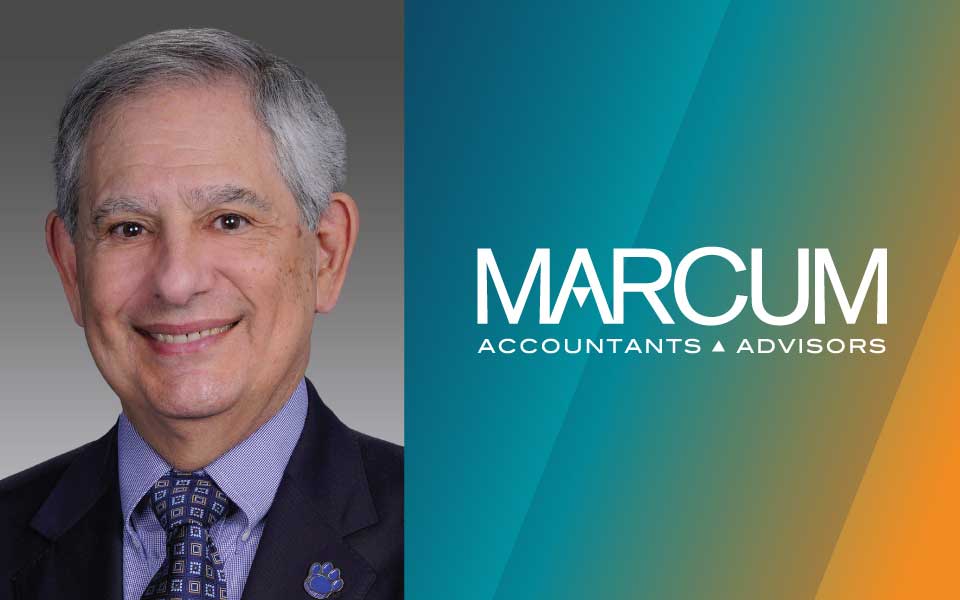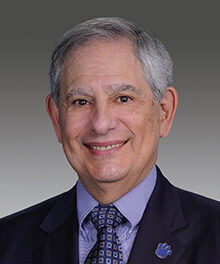Article by David Glusman, Advisory Services Partner and Michael Molder, Advisory Services Senior Manager, "Financial Oversight and the Institutional Investor," Featured in The Legal Intelligencer
The Legal Intelligencer

In early May, the California State Teachers’ Retirement System (CalSTRS) announced that it would vote against four of the five directors on Bank of America’s (BAC) audit committee and the reappointment of its auditor. This announcement, just days before the BAC’s annual meeting, came in the wake of the Federal Reserve Board’s April 28 announcement that BAC would need to suspend its planned dividend increase and stock repurchases because “the banking organization incorrectly reported data used in the calculation of regulatory capital ratios.” According to BAC, the miscalculations related to its acquisition of Merrill Lynch. Through a spokesman, CalSTRS, a $183 billion public pension fund and owner of 31 million shares of BAC, expressed “serious concerns with the fact that this crucial financial metric was overstated for six years. This issue raises new questions about board oversight, risk controls, and the external auditor, specifically given the auditor’s tenure over the entire period.”
CalSTRS and BAC are just an example of institutional investors’ increasing involvement in corporate oversight. According to “Are Institutional Investors Part of the Problem or Part of the Solution?” by Ben W. Heineman Jr. (senior fellow at Harvard Law School’s Program on Corporate Governance) and Stephen Davis (executive director of Yale University’s Millstein Center for Corporate Governance and Performance), institutional investors, including public and private pension funds, mutual funds, insurance companies and foundations, control approximately half of U.S. equity securities. Looking only at the largest U.S. corporations, institutional ownership grew from approximately from 47 percent in 1987 to 73 percent in 2009.
Clearly, institutional investors can wield influence in corporate boardrooms, and that influence tends to be beneficial. According to “Are There Monitoring Benefits to Institutional Ownership? Evidence From Seasoned Equity Offerings” (Journal of Corporate Finance, Volume 17, 2011, p. 1348), “active institutional ownership” relates positively with corporate performance and through active monitoring of corporate activities, “institutional investors have the ability to prevent value dissipating activities within a firm.” Consistent with these findings, corporate restatements have been on the decline. According to data from Audit Analytics, U.S. registrants’ restatement announcements have declined from around 1,800 restatements in 2006 to less than 800 in 2013.
While CalSTRS’s actions did not change the outcome of the BAC shareholder meeting that occurred just days after the Federal Reserve’s announcement, it highlights the need for companies, and, in particular, their audit committees, to be responsive to shareholder concerns for accurate and transparent financial disclosure and oversight.
As the U.S. Securities and Exchange Commission stated, in SEC Release No. 34-42266, “Effective oversight of the financial reporting process is fundamental to preserving the integrity of our markets. Audit committees play a critical role in the financial reporting system by overseeing and monitoring management’s and the independent auditors’ participation in the financial reporting process. Audit committees can, and should, be the corporate participant best able to perform that oversight function.”
The fundamental duty of the audit committee is to hire the auditor and review the auditor’s findings to provide the greatest clarity to the issuer’s financial disclosure. To fulfill this responsibility, audit committee members require a degree of “financial literacy” beyond that of regular board members. (See Report and Recommendations of the Blue Ribbon Committee on Improving the Effectiveness of Corporate Audit Committees, 25 (1999).) Financial literacy is a critical skill for an audit committee member who, in what is typically a part-time role, must review and evaluate full-time management’s assertions about financial performance, accounting policies, complicated intra-company transactions and a host of other complex, often industryspecific disclosures.
Certainly, the independent financial statement auditor is a key element of that oversight responsibility, but, at a certain level, the auditor’s independence may hinder its ability to advise the audit committee. While the auditor’s professional standards permit communication with client audit committees in conjunction with the audit process, when those communications move from reporting events—such as the discovery of misstatements in previously issued financial reports—to advocating the appropriate response to those events, the auditor’s independence would be impaired. For these situations, the audit committee needs advice consistent with the audit committee’s responsibility to shareholders.
In larger organizations, that advice can come from an internal audit group. Internal auditors, who report directly to the audit committee, bring the analytical skills of the independent financial statement auditor to bear without the advocacy limitations of the independence rules. This is precisely what happened recently with Hertz Global Holdings. In early June, Hertz disclosed that it would be filing its first-quarter 2014 report late and restating at least 2011 financial results as a result of errors detected through an internal audit and reported to the audit committee.
A robust internal audit department is fine for large entities, but smaller companies may be unable to afford the full-time commitment of internal auditors reporting directly to the audit committee. In grappling with the mandates of financial disclosure and oversight, audit committee members at these smaller entities may require outside advisors. Audit committees can turn to their own counsel and financial advisers for help in analyzing the performance of both management and independent financial statement auditors. Consultants, separately retained by the audit committee, are able to focus on the disclosure and oversight obligation that the audit committee has to shareholders without being hamstrung by a conflict of loyalty to management or professional obligations to remain independent of implementing corporate functions. Unlike financial statement auditors, audit committee consultants can grapple not just with the objective analysis of what happened, but also with the normative issues of appropriately responding to those events—precisely the kind of subjective role that financial statement auditors cannot take.
While historically, audit committees may have been window-dressing on management’s relationship with the auditor, more recent SEC guidance establishes that an audit committee, composed of independent directors, should be authorized to budget for the audit and any other advisers the audit committee requires, in its role as a committee of the board of directors, to evaluate financial disclosures and monitor internal accounting controls. As the SEC advises, “An audit committee’s effectiveness may be compromised if it is dependent on management’s discretion to pay for the committee’s expenses, especially when potential conflicts of interest with management may be apparent.” In addition to the specific assistance in reviewing financial statements and audit results, audit committee-retained financial and legal advisers can provide training for audit committee members in fulfilling a variety of other responsibilities that fall to the audit committee either in its charter or by default. By way of example, the audit committee often assumes responsibility to evaluate internal accounting controls and assess incentives and opportunities for employee or management fraud. Few board members are likely to have a strong foundation in fraud detection and related statutes, such as the Foreign Corrupt Practices Act (15 U.S.C. § 78dd-1, et seq.). Competent legal and financial advisers, however, can assist audit committee members in understanding and fulfilling these obligations.
Useful in fulfilling audit committee members’ routine oversight obligations, separate legal and financial advisers can be critical for the audit committee when questions arise regarding the adequacy or accuracy of financial disclosures. Few events make board members’ blood run cold like the discovery that previously issued financial reports may have been materially wrong. The investigation of potential restatements and allegedly fraudulent or illegal conduct are not routine events. As much as management may assert that it is fully cooperating with such investigation, there is an inherent conflict between management’s interest and the board’s, or more particularly the audit committee’s, responsibilities to the shareholders. In these kinds of situations, the audit committee’s ongoing commitment to independent thought and action, including utilizing professionals dedicated to the audit committee’s unique obligations to shareholders, can help assuage the concerns of institutional investors, like CalSTRS, regarding “board oversight, risk controls, and the external auditor.”




















